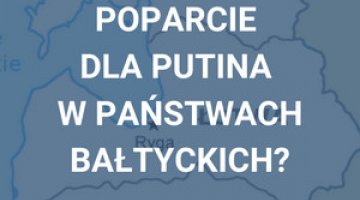Analyses
Lithuania in a diplomatic dispute with Austria
On 14 July in Austria, a Russian citizen, Mikhail Golovatov, was arrested. He was wanted by Lithuania by means of a European arrest warrant on charges of leading the action of pacifying independence protests at the TV tower in Vilnius on 13 January 1991. However, Golovatov was released overnight on 14 to 15 July and allowed to return to Moscow before the Lithuanian prosecutor's office provided documents which complemented the arrest warrant. Lithuania accused Austria of a lack of solidarity in a case which is hugely important for Lithuania and for which Vilnius expects particular understanding from its EU partners.
The Lithuanian prosecutor's office has been seeking the former KGB officer, protected by Russia, as it considers him guilty of crimes against humanity. In January 1991 he employed special unit Alfa against Lithuanian protesters, which ended in bloodshed. Austria, while releasing Golovatov from arrest, referred to article 42 of the framework decision of the EU Council concerning the European Arrest Warrant (EAW). The article allows the exclusion from the use of the arrest warrant crimes which were committed before the adoption of the regulations (Austria adopted the EAW in 2002). However, Lithuania charged Austria with the breach of EU extradition procedures but above all it accused Austria of a lack of solidarity towards an EU partner and even of succumbing to pressure from Russia (Lithuania's Ministry of Foreign Affairs in a note addressed to Moscow called for a clarification of whether Russia influenced the decisions made by Austrian officials). Latvia and Estonia also undertook diplomatic measures in support of Lithuania’s argumentation and Poland as well as the Czech Republic expressed their solidarity with Lithuania’s endeavours to punish persons responsible for crimes against participants of independence movements. In her assessment of the events, Justice Commissioner Viviane Reding acknowledged that Austria had the right not to execute the arrest but she criticised the lack of thorough co-operation between the EU countries.
Austria's attitude which caused Lithuania's indignation and the lack of general and immediate condemnation from EU officials and member states may affect the identification of Lithuanians with the EU as a community of countries sharing similar values. <jhyn>




